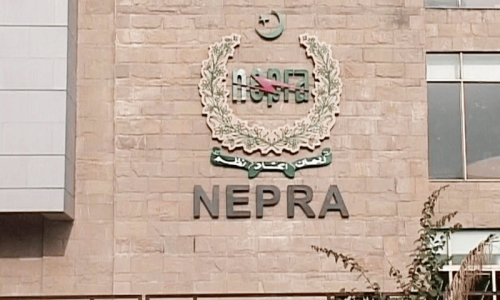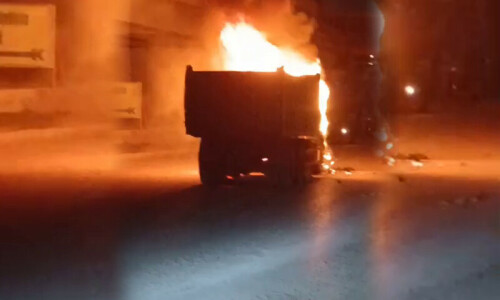GLOBALLY, the two childhood activities affected most by Covid-19 have been routine immunisation and schooling, which may have a lasting impact on children’s development. Prior to the pandemic, an estimated 22.8 million children aged five to 16 were already out of school in Pakistan. Then government-mandated lockdowns disrupted the education of even those children who were enrolled in school. With schools across Pakistan now reopening, it is extremely important to ensure they remain open.
The governments have issued SOPs to ensure the safety and well-being of students as well as to limit the spread of Covid-19 through community infection, but schools may still struggle with the additional burden of having to develop strategies to manage infrastructure, logistics and protocols.
Preparedness for reopening education institutions can be a challenging task, since there are no comparable events in recent history to draw lessons from. Stark comparisons have been made to the Spanish flu pandemic of 1918 that took millions of lives. While mask-wearing, handwashing and social distancing are cornerstones of the battle against Covid-19, it is important to address these additional challenges and chalk out mitigation strategies.
To ensure the well-being of all stakeholders — including students, teachers and staff members and parents — the primary task of all schools will be to ensure that everyone practises regular handwashing and cough etiquette, uses face masks as per WHO guidelines, maintains a physical distance of at least three to six feet from others, and isolates at home in case they develop fever and/or flu-like symptoms.
Training, awareness and communication will be key to ensuring school-wide safety.
Training, awareness and communication will be key to ensuring school-wide safety. Schools will have to educate communities through active communication channels to effectively practise SOPs. These can include instant messaging groups and other forms of social media to communicate and coordinate effectively, as well as printed media such as brochures, flyers on bulletin boards and banners to spread awareness and advocate for universal compliance with safety measures.
Schools must immediately start designing communications and use such communication channels to brief parents about school routines, safety measures, access to school, and how teaching and learning will continue in the wake of the pandemic. Classes shouldn’t be longer than four hours and must be conducted over two shifts. There should be at least a one-hour gap between shifts to ensure that schools, especially classrooms, are properly cleaned and that teachers have the time to take extra hygiene measures between meeting different groups of students.
Teachers must be trained to be ambassadors of health and hygiene, modelling appropriate behaviour to ensure that students and parents adhere to the SOPs and other protocols. Teachers have to advocate for safety and prevention measures and be able to explain their necessity and importance. In addition to carefully designing — rather redesigning — the taught and experienced curriculum, teachers will have to integrate the importance of healthcare and attitudes to care and responsibility. Classroom teaching time will have to connect with recent themes of stress and anxiety in their students’ lives, awareness about the spread of infection and necessary precautions, and the reasons behind casual or dismissive attitudes towards disease prevention.
The role that parents must play is as important as that of schools. Parents must not only responsibly follow all SOPs to ensure the safety of their children, but also ensure that their children follow and understand the importance of these safety measures, and regularly discuss the importance of being careful for their own as well as others’ safety.
Keeping in mind Pakistan’s diverse educational ecosystem — which ranges from schools in the public and private sector, community-based as well as madressahs, all with their own context, uniqueness and diversity in infrastructure, staffing and administration practices — it is difficult to propose universal recommendations. Yet, besides the basic safety guidelines, there are a few essential recommendations for planning classes that can be adapted to various contexts.
(i) Adopt a blended learning model, where half the classes are covered on campus (such as primary) and the rest are conducted remotely (such as secondary and above);
(ii) Stagger timings and scheduling shifts so that all students do not come to school at the same time;
(iii) Reorganise classrooms to ensure a minimum distance of three to six feet (approximately one to two metres) between students;
(iv) Visibly display signs, markings and notices to serve as behavioural cues for all stakeholders;
(v) Consider visitation and group activities, both indoors and outdoors, only if they can be conducted in a safe environment;
(vi) Keep canteens closed (or if they are open, maintain physical distance);
(vii) Regularly clean water tanks and filters, but encourage students and staff to bring their own drinking water;
(viii) Limit parental visitations, and have parent-teacher meetings remotely;
(ix) Ensure diligent housekeeping and sanitation; disinfect surfaces with either hypochlorite or alcohol-based solutions as per WHO recommendations;
(x) Designate isolation rooms in case anyone develops fever and/or flu-like symptoms at school;
(xi) Ensure transporters also follow SOPs, including limited number of students in one vehicle;
(xii) Minimise the sharing of stationery and other school resources between students.
There is no doubt that responsibly managing the reopening of schools is a Herculean task for educational institutions. But it is one that we must undertake diligently to ensure the least possible negative impact on the education, safety and well-being of Pakistan’s children.
Dr Shelina Bhamani is an assistant professor of Research and Lead Parenting Education, Division of Women and Child Health at AKUH. Dr Ali Faisal Saleem is an assistant professor, Paediatric Infectious Diseases and the Service Line Chief, Children’s Hospital at AKUH.
Published in Dawn, September 25th, 2020









































